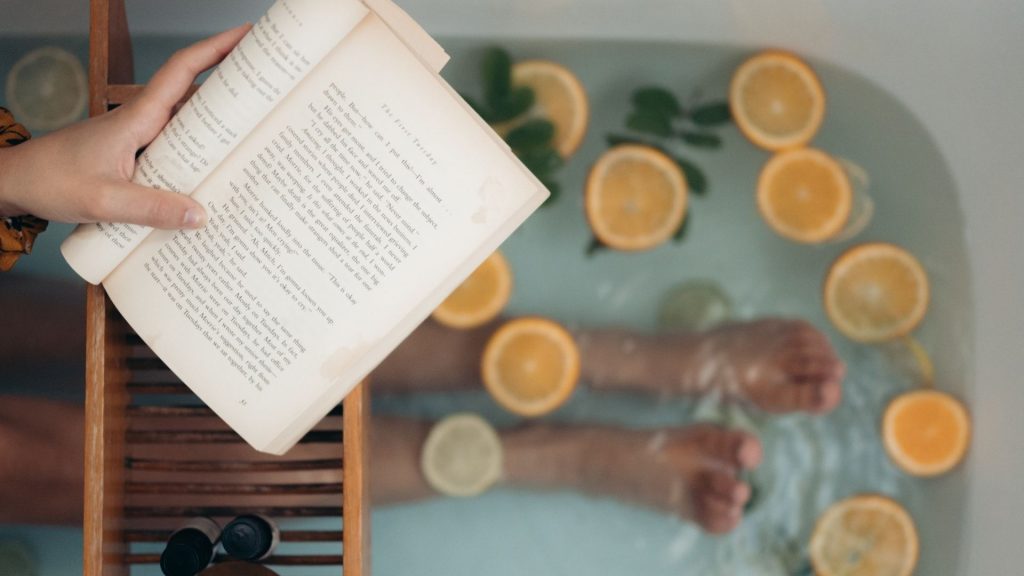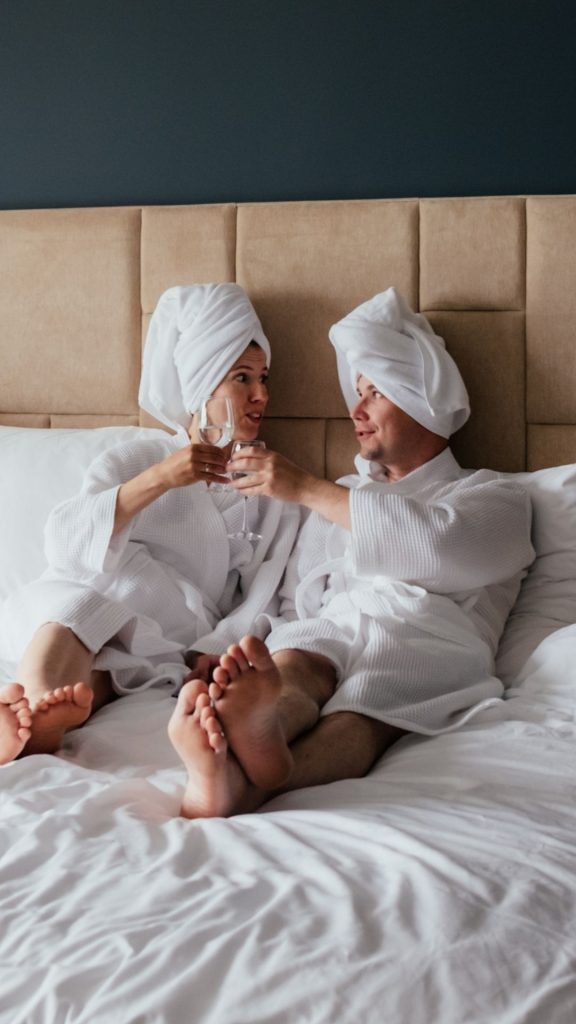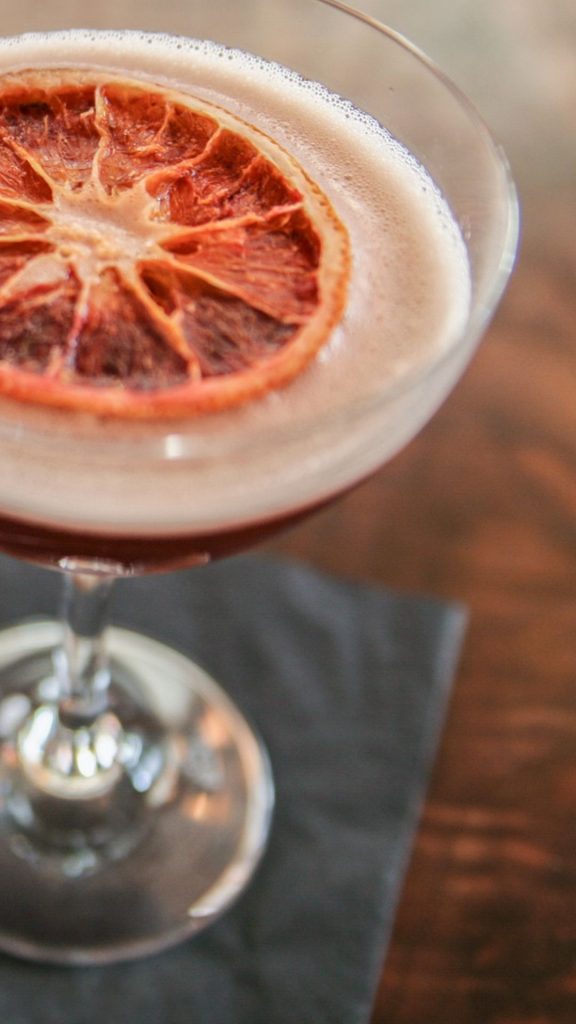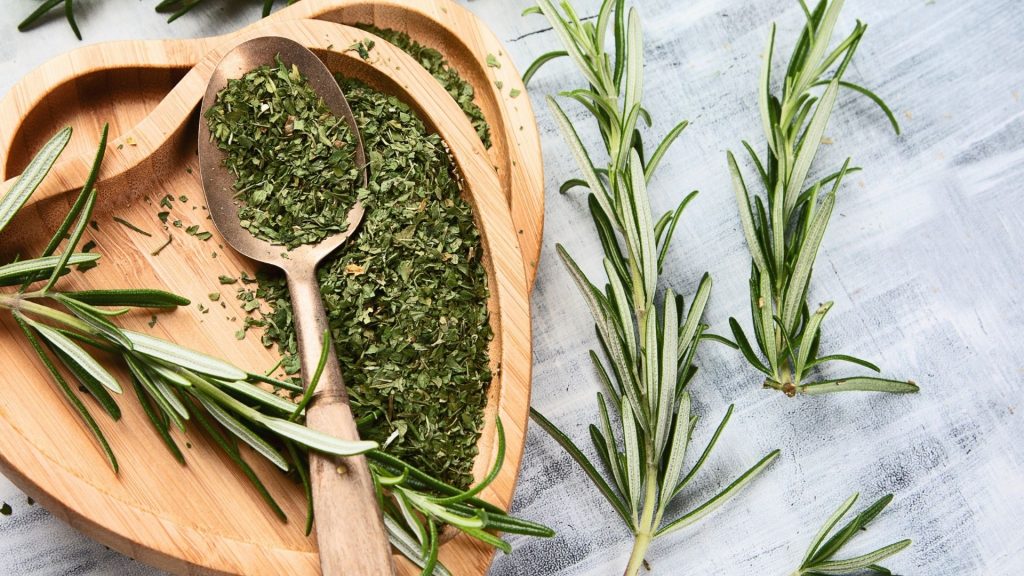This year’s spring clean feels long overdue and after the long hibernation, we’ve all experienced it feels like we need a new chapter in our homes. Something fresh, new, healthier and brings back joy and good energy. With this in mind, we looked back at simpler days of tried and true – Portuguese Grandma – approved natural cleaning and the good news is you likely already have everything you need, or they are easily found. And not only are they effective they will leave your home feeling and smelling delicious too.
Natural Cleaning Products
1. Bleach

Portuguese Grandmothers generations over love bleach (Chlorine Bleach) because they know life happens; kids, pets, wine spills, so if you want to disinfect, keep your whites sparkling white and your home odour free, traditional Chlorine Bleach gets the job done. Loved for its powerful effectiveness and versatility most traditional Portuguese homes will have at least 1 – 5Lt jug on hand.
What you need to know:
Undiluted bleach is very powerful and can burn surfaces and skin so it’s important to dilute to the appropriateness of the job and of course wear protection. And although it can seem a bit intimidating to use, with a little care it can replace most of your other cleaning products – millions of Portuguese Grandmothers can’t be wrong.
A standard dilution is a 1:3 ratio, but this can be adjusted depending on the job. Whenever using bleach, take care to protect your skin and use in a ventilated area. A good practice is to use gloves and eyeglasses in case of splashbacks. Bleach will also strip colour so keep your favorite colour goods and natural materials like wood away from bleach. Also keep in mind bleach on its own is not a detergent but will work with most laundry detergents.
As A Disinfectant – bleach is a powerful disinfectant to kill all kinds of household bacteria. So powerful it’s best used diluted with water, and in doing so gives you the option of its potency to the application. Its effectiveness and versatility make it able to be used In the kitchen, bathroom, floors, rubbish bins, pet and pool areas, and can even be used to kill weeds, however, you don’t want to have spill-offs that can damage areas in your garden. In the kitchen where bacteria can be a major health problem, bleach can be used on appliances, cooking utensils, counters, and is very effective in eliminating bacteria on plastic cutting boards where salmonella and other types of bacteria can grow and contaminate other foods and areas of your home. When using your bleach dilution test in a hidden area of a product or surface before using liberally to ensure colours will not be stripped.
Whiten Fabrics – Add bleach when machine laundering your whites, hot water and a strong detergent will increase its effectiveness. Check your garments and linens before laundering however, to ensure they can handle both heat and bleach and not be damaging. Deeply soiled or stained fabrics may also be brought to their original white with a diluted soak.
*If sun drying your laundered goods, make sure your whites have been very well rinsed to remove traces of bleach and avoid possible yellowing when sun drying.
Remove Odours – bleach has its own strong odor but neutralises all other odours. Portuguese cuisine regularly includes; fish, eggs, chicken, pork, and garlic among other strong flavours, all of which produce strong odours that can stay on plates, pots, pans, utensils, and cooking areas. And no Portuguese person wants their fresh fruit or slice of cake tasting like yesterday’s sardines… If you didn’t understand the Portuguese love of bleach, you do now, and why most traditional kitchens have a 1:1 ratio spray or squirt bottle near the kitchen sink to nip those food odors in the bud.
Kill Fungus & Algae – chlorine bleach is often used in pools, but in liquid form, it’s also an easy and effective option to remove algae and mold found on walls and concrete terraces. Watch however using bleach won’t strip materials, and runoff doesn’t bleed into the healthy greens you want to keep green.
2. Alcohol
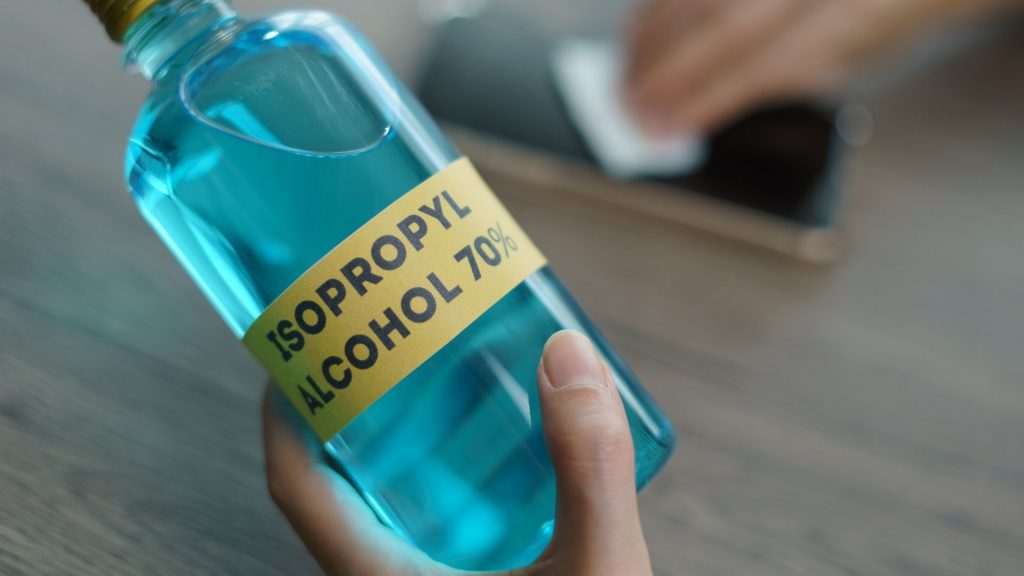
Although having a cocktail while you spring clean could make it more fun, its likely not going to speed up the task, and the alcohol we’re talking about here is the medical type and most definitely – not for human consumption. In a pinch however, you could use Bagaco, the Portuguese version of Vodka, to do the job, but you never want to do the reverse.
What you need to know – rubbing alcohol (isopropyl alcohol) is considered a ‘surgical spirit’, has a strong odour but dissipates quickly if used in a ventilated area. It’s highly effective at disinfecting in concentrations above 50% and usually available up to 99% depending on your chemist. It’s however curiously, NOT potent enough for medical sterilisation, so should a serious medical emergency happen at home, you still need to get to a hospital. Isopropyl alcohol is also highly flammable, and best not use near a flame or where there may be sparks. Now that we have that out of the way, isopropyl alcohol has some great household cleaning uses.
How & Where to Use Alcohol:
Disinfect & Degrease – With a 1:1 ratio (alcohol:water) mixed in a spray bottle you have an instant disinfectant that’s ideal to remove fingerprints from glass, mirrors, stainless steel and chrome, and leaves no streaks. Use it to disinfect cosmetic brushes and lift oil and makeup from shirt collars, just test prior on a small area to ensure it doesn’t lift the colour of your garment. It’s also an effective cleaner and disinfectant for personal jewelry and safe to use with real gold and silver, but not porous stones, pearls, or costume jewelry. When all the cleaning is done it can also disinfect your cleaning sponges, brushes, clothes, mops, and brooms, so you don’t risk spreading germs across your home.
Problem spot fixer – Removes sticky glue and hair spray residue from glass, mirrors, metal and ceramic sinks, nonporous floors and markers from dry erase boards. Widely used in electronics so perfect for cleaning cables, keyboards, mouse, and desk surfaces. Careful however with computer screens as these may have delicate finishes, and best to check with the manufacturer before applying any product.
Create Your Own Linen Spray – Create your own home scent or linen spray with a 1:3 ratio (alcohol: distilled water), and a few drops of essential oil or herbs like rosemary, lemon or orange, shake and spray. Wonderful for ironing linens and filling your drawers and cupboards with fresh spring scents.
Personal Use – Handy to have in case of cuts, and scrapes, and your first aid kit. Smelly shoe insoles? Spray inside your shoes and place them outside in the sun to dry and neutralise odors.
3. Vinegar
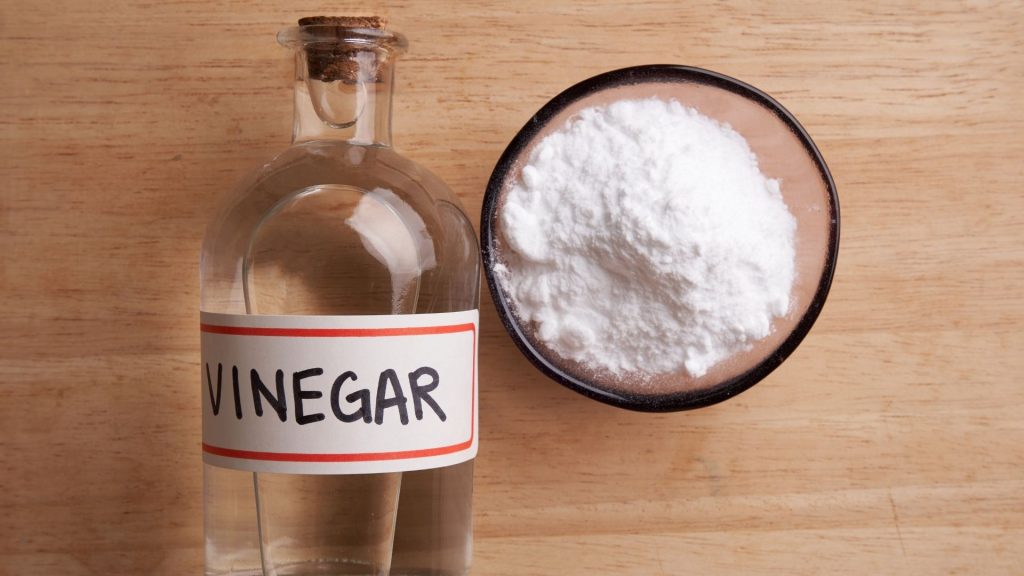
Being a wine country Portugal has no shortage of vinegar, and white vinegar is an effective natural acid cleaner able to manage bacteria, funguses and dissolve mineral deposits and grease from surfaces.
What you need to know – Vinegar at low concentrations can be gentler on the skin than bleach; it can however be corrosive to metals so take caution metals are not over-exposed to vinegar. At the standard commercially available 5% concentration vinegar is less effective than chlorine bleach at fighting bacteria, but still effective at descaling and degreasing. At concentrations above 10% vinegar is very powerful and needs the same precautions as bleach.
How & Where to Use Vinegar:
Disinfecting & grease removal – Vinegar is great at lifting grease and grime from surfaces. A warm water and vinegar bath will easily remove sticker glue and residue from glass, plates and non-metal cookware. Lifts grease from backsplashes, counters, stovetops, and sticky finger residue from glass. Mixing vinegar and baking soda into a paste can be an effective remedy for hard to remove grease on surfaces. And, if you have pets, a little vinegar and water on a damp cloth can work well to clean beards and paws between baths.
Descaling & Spot Removal – Boiling vinegar and water can help you descale your kettle or coffee carafe, but isn’t recommended for most modern irons. Descaling your shower head with vinegar and water can however help you keep it from clogging with limestone. When you need a quick way to remove water spots from wine glasses, dilute vinegar in a little water and dab a lint-free cloth, and wipe, same with your cutlery. Your dinner guests will never know you had a spot fest prior to their arrival and your entire place setting will also be fleshly disinfected. The same works on chrome fixtures, windows and most places where you’ll find calcium and limestone build up and hard water spots.
Remove Odours – vinegar works wonders to remove odours and although it has its own strong scent it dissipates quickly. Use it diluted to clean odours from your food processor, pressure cooker, spice grinder, and cutting boards. Remove strong odours from a room or home quickly by boiling water and vinegar in a large open pot and letting steam neutralise the air. You can use the same principle for your refrigerator and microwave with a small bowl of hot water or wipe them down with vinegar and water dilution.
Prevent Colour Fading – Adding vinegar to your colour laundry will help fix colours, prevent fading and maintain original colours longer.
AntiFungal – Use vinegar to clean your bathroom soap and toothbrush holders. Ceiling, tiles and walls of damp, humid rooms or old homes to prevent mold and fungus from growing. Use vinegar to wash and or spray fabrics that will be stored or in places of limited sunlight for extended periods – this can work for the inside of your sneakers also.
Personal Use – not white vinegar, but apple cider vinegar with its alkalizing effect, has shown promise to help the body balance its PH environment when consumed on an empty stomach on waking (diluted with water 1:3 ratio). White vinegar sprayed inside your shoes and left outside will help deodorise and kill fungal bacteria.
4. Baking Soda
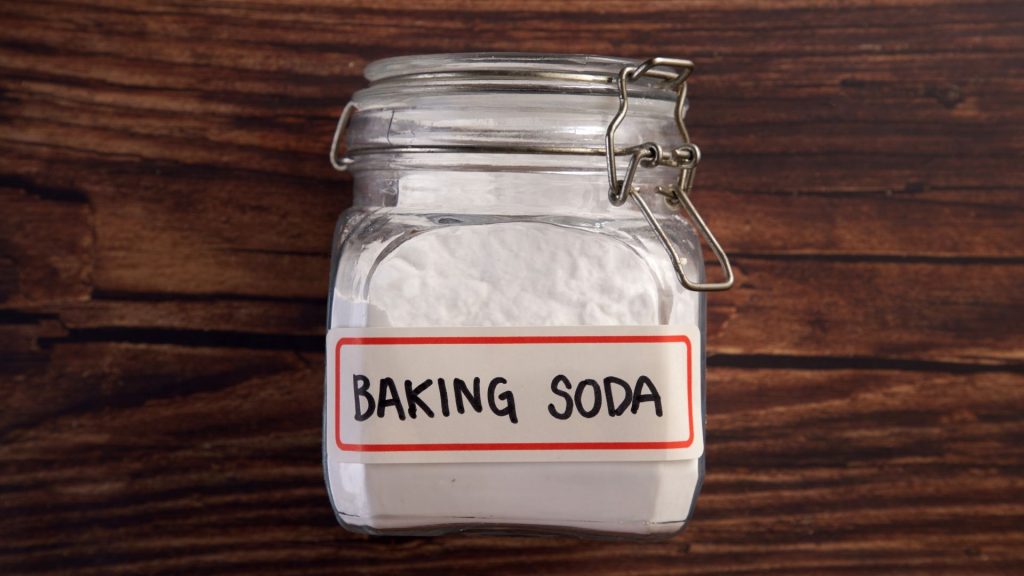
Popular in baking to add fluffiness to cakes, cookies and the like, and long been loved in households for duties outside baking as well. Baking soda can be used on the body for medicinal purposes, and also works as a powerful cleaner. It can also sometimes be confused with ‘baking powder’ and ‘soda carbonite’ its chemical cousin, two similar looking but chemically different substances. Confused yet?
What you need to know – Quick chemistry debrief to dispel the magic of these powders. Baking Soda (NaHCO3) (is also known by a lot of other names: Bicarbonate of Soda or Soda Bicarbonate, Carbonic Acid Monosodium Salt, Sodium Hydrogen Carbonate and Sodium Acid Carbonate), its chemically similar yet different to Soda Carbonate (Na2CO3). Both are also curiously two of the world’s most used and important natural chemicals, and although similar they have different applications due to their chemical makeup, but neither is toxic to humans if consumed in low doses. Baking Powder on the other hand is a mixture of compounds: sodium bicarbonate plus cream of tartar, sodium aluminium sulphate, and calcium acid phosphate. Baking Soda and Baking Powder are both used as leavening agents for baked goods, but as Baking Soda is about 4 times stronger, and more versatile it’s long been used as a household cleaner, and medicinal agent. Soda Carbonate meanwhile is used more in industrial chemical processing and manufacturing. Hopefully, that sheds some light on these three potions, and next time you bake a flat cake you’ll know what you forgot to include.
How & Where to Use Baking Soda:
Cleaning & Disinfecting – sprinkle on a damp sponge and gently scrub onto your stainless steel surface, rinse, and you have a sparkling finish. You can also dilute 3:1 (baking soda:liquid) water or an acid like vinegar or lemon juice to make a powerful and immediately active scrub/paste to clean bathroom ceramics, walls and lift stains from fabrics, rugs and carpets throughout your home. Clean the microwave easily by placing a bowl with water and 2 Tbs baking soda, bring to a good steam and let sit for 5 minutes and then sponge off microwave walls. Freshen and kill possible fungus from water and sports bottles by washing with vinegar and baking soda. Unclog and degrease sinks by pouring a kettle of hot water, followed by baking soda and vinegar and another kettle of hot water – use this every few months to keep pipes clear. Have food stains in plastic storage containers? You can remove these by soaking them in water and baking soda bath. If somehow crayon appears on your wall, sprinkle baking soda on a damp sponge and rub gently to lift.
Fruit & vegetable rinse – produce can have all sorts of pesticides, polishes and dirt from transport and handling, washing individual pieces with Baking Soda and water will fix this, or if you have a few simply add your produce to a Baking Soda and water bath, leave for a few minutes and rinse.
Deodorise – mattresses can be hard to sanitise and deodorise, but you can accomplish this by spraying your mattress well with vinegar and then sprinkling baking soda, leave on for a few hours and once dry vacuum. If you ever find your dishwasher is smelly run a hot cycle sprinkle Baking Soda on bottom leave overnight, run a second time and voila, dishwasher refreshed. Deodorize wooden cutting from harsh smells by washing with vinegar and Baking Soda or rubbing in lemon and baking soda. An open box, or container, of Baking Soda in the refrigerator will also help neutralise odours. The same will also work for storage closets, pantry, where you store clothing, in suitcases, shoes or sports equipment.
Personal Use – Popular for whitening teeth, deodorant, foot soaking to relieve swelling, and also good to dust inside shoes as an antifungal/bacterial. Baking soda however can also be very helpful in managing a number of skin conditions (eczema, psoriasis, poison ivy/oak, fungal skin & nail infections, chickenpox, diaper rash) good to also exfoliate skin, shown to help with UTIs, yeast infections and constipation to name a few. Knowing this, once your home is completely clean, running a soothing hot bath seems almost necessary, doesn’t it?
5. Salt

Portugal is rich in salt, sea salt of different grades and courses, and also award-winning flor de sal the jewel topping of any meal. And although food wouldn’t be the same without a dash of it what isn’t often discussed is its other uses like cleaning.
What you need to know – salt is a natural mineral with the unique ability to cause damage, but also heal the human body and mind, and is also great for cleaning where you may need gentle abrasiveness. It also has absorption, and antibacterial properties and can be easily mixed with baking soda, water, vinegar, lemon, or other natural herbs to combine antimicrobial properties with abrasion.
How & What to Clean With Salt:
Disinfecting – Passing fresh fruit through a bath of 10% salt is a great way to wash and preserve fresh fruit before ingesting or putting it in the refrigerator. And salt on half a lemon is an effective way to scrub clean and sanitize kitchen cutting boards.
Descaling – Cast iron pans are great until you need to clean them, but run salt helps clean them, by either boiling water with salt until the debris comes loose or creating a dry scrub past. The bottom of irons can also be descaled by using a hot iron on newspaper layered with salt. Prevent grease and scale build-up by pouring a mix of salt and hot water down household drains.
Absorption – spills on fabrics, rugs, or even in the oven, salt can come to the rescue. Salt poured on wine spills helps absorbed the liquid into the salt and away from the fabric. If you have a spill pour on lots of table salt and wait for the salt to absorb it then remove or vacuum the salt away. When oven baking without a way to catch possible spillovers, sprinkle salt on the oven floor and any oven spill will be much easier to clean up.
Brighten Clours & Stain Removal – use salt and/or vinegar with the bright colored and dark laundry to help fix and prolong colors, they also work as a natural disinfectant. Mix salt, baking soda, and a little water to make a paste to create an effective stain remover for fabrics.
Polish Metals – use baking soda, salt and vinegar to make past to clean and polish brass and copper pots. Try a test area first to assess the potency of the mix on metal, then wash fully and puff with a soft cloth.
Problem Fixer – when you want fresh cut flowers to last longer, add a pinch of salt to their water, and when you want to kill weeds add a high concentration of salt to the water and pour over, or use dry on problem areas. Salt also helps control ants in your home when sprinkled on window sills and doorways. If you find yourself needing to suffocate a small fire and don’t have another option, a few handfuls of dry salt could help bring it down.
Personal Use – Salt is more often shown as a negative to human health than a positive, but it’s actually a very important mineral for the body. Good news is one of the best ways to get its positive benefits in a hot bath. Saltwater helps with mineral absorption, can help manage most skin conditions, even sensitive skin (eczema, psoriasis, rashes, acne, sunburn, dehydration, among others), as well as help you destress. Since Portugal has no shortage of sea salt so you’re in luck as the best benefits are seen with a good quantity (250g+) of salt diluted in hot bathwater.
Natural Cleaning Scents
1. Orange
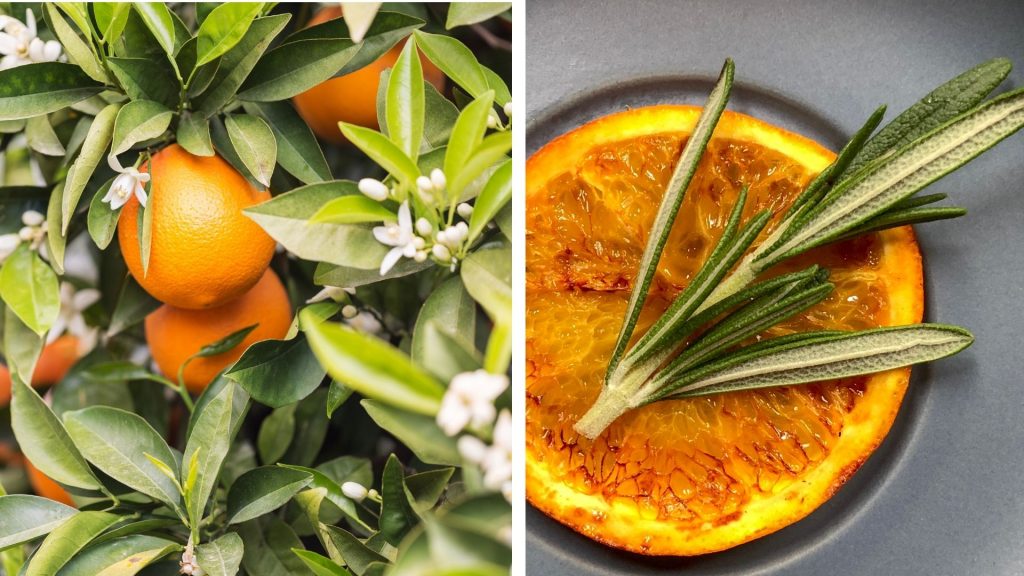
One of southern Portugal’s most popular fruits. Wonderfully juicy, sweet, filled with vitamin C, and overall good for you, but did you know it’s also great for cleaning and deodorizing? Oranges are a citrus fruit and so have natural acids allowing you to substitute them for lemon, or other harder acids. Their peels hold natural oils that not only smell great they can also be used for polishing surfaces, cutlery, and glass. Orange peels can also be used to deodorize the refrigerator, closets, and cupboards and even expel insects. They partner well with baking soda, salt, vinegar and of course water. And best of all after cleaning you have a juicy and healthy snack.
2. Lemon
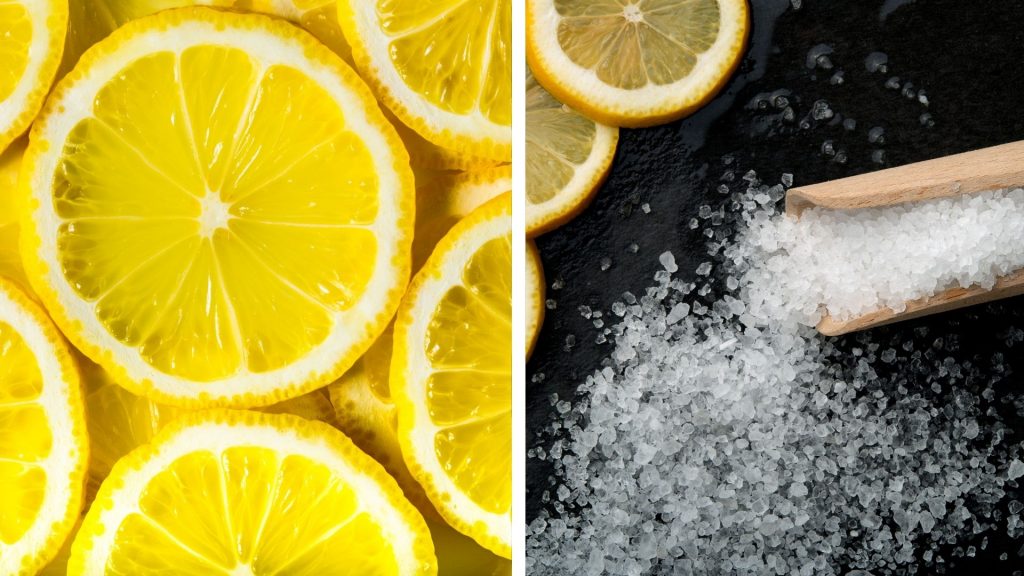
High in citric acid, antibacterial properties, and a wonderful scent – lemon is a favorite go-to natural cleanser. A little more aggressive than oranges, with near the same PH level as vinegar, it can often substitute for vinegar and works well with baking soda, salt, and also water. Lemon’s natural acidity helps lift stains and whiten your laundry, and when partnered with baking soda and/or salt is also a good brass and copper cleaner, and can descale tiles and ceramics as well. Like oranges, lemon peels hold natural aromatic oils that can help polish woods, add a wonderful scent throughout your home, repel bugs and even be a lovely scent in a relaxing bath. Lemon is one versatile little orb.
3. Lavender
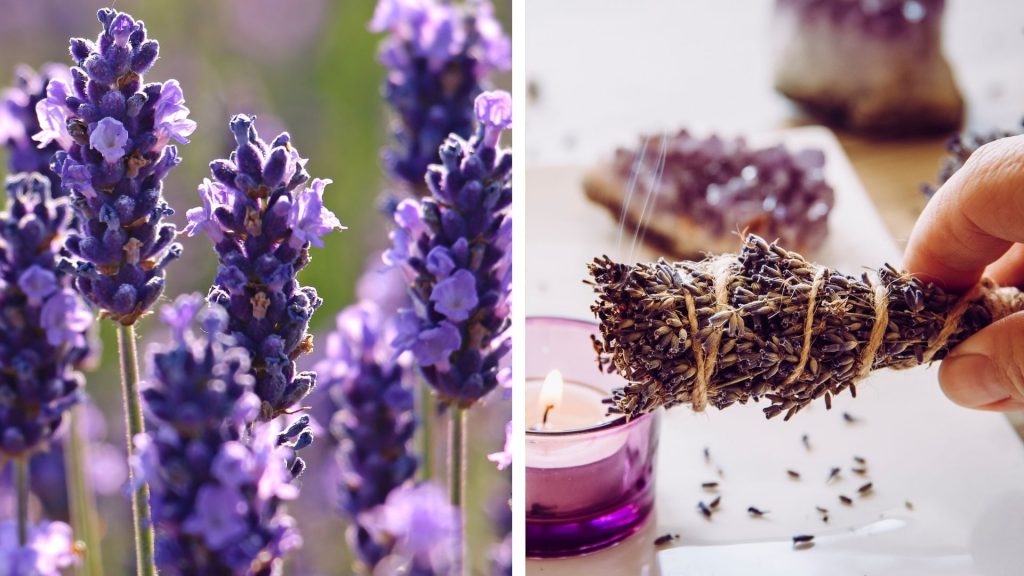
More than just purple and pretty. Lavender has natural antibacterial and deodorising properties and is a strong bug repellant. You can plant it in pots, containers or in your garden to help control pests, especially mosquitoes. Use dry in satchels on its own or with baking soda and/or salt to deodorise drawers and cupboards. It’s also available as an essential oil allowing you the versatility to use a few drops in distilled water to make a linen or home deodorizer spray, a boil where you can mix other scents like lemon to deodorise your fridge, microwave or entire rooms. Spray on mattresses and sprinkle with baking soda to spring clean your mattresses or carpet. Dry lavender also makes for great smudge sticks to cleanse air and bring positive energy in your home. So many options to be creative with this powerful plant it’s easy to understand why it’s been considered a holy plant for thousands of years.
4. Rosemary
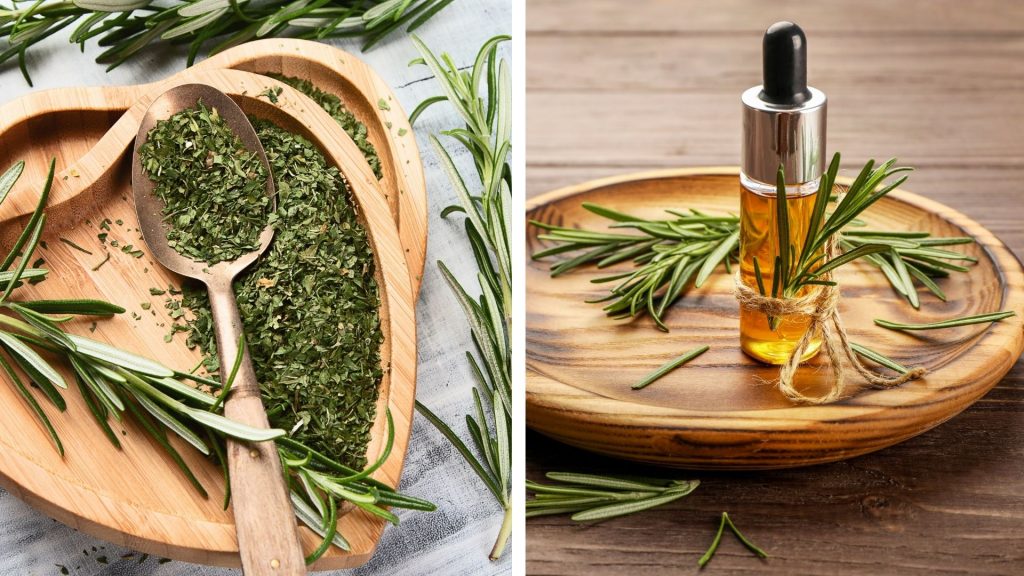
An herb with antibacterial, antifungal and antiseptic properties that’s all-natural and was once used widely in hospitals. Like lavender, you can easily grow rosemary in your home or garden and get creative in how you use it. If you don’t have a green thumb you can get the same benefits by using an essential oil. Rosemary works well with water, vinegar, salt, and baking soda as well. Try mixing yourself a batch of orange peels and vinegar, wait a few hours then strain and dilute with water and you have yourself a powerful disinfectant and home spray that smells delicious. If you prefer a drier option, add to orange or lemon slices and bake in a warm oven, after your home is scented you have the bonus of being able to add the slices to a rice dish, salad, or cocktail. Rosemary’s scent is also considered to have olfactory benefits that can help reduce stress, boost mental clarity and activity, and help respiratory function. Didn’t you wish you knew this factoid when you were in a pandemic panic? Next time you’ll be ready.
5. Cinnamon
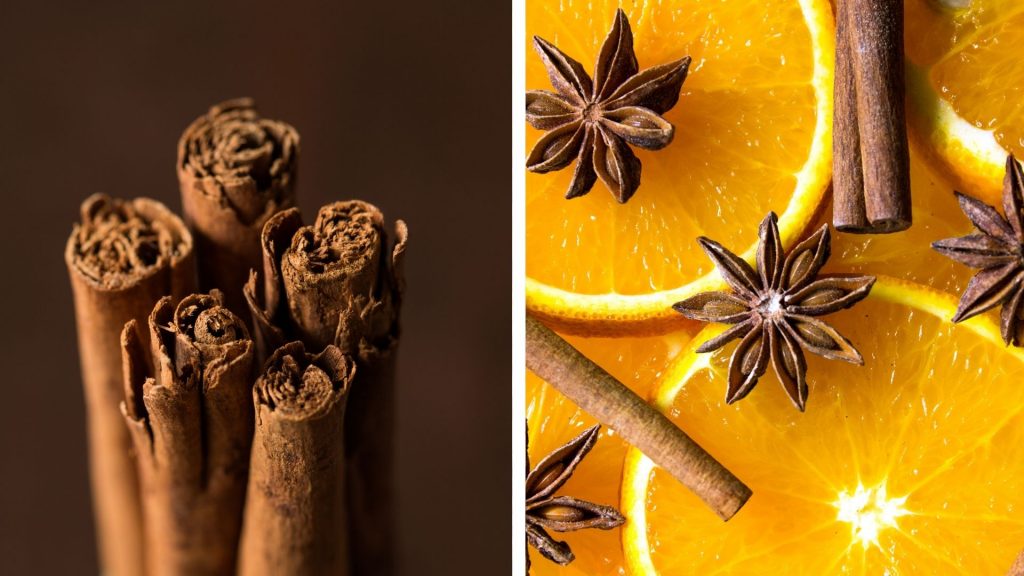
Found in most kitchens in powder or stick form, this unique spice has incredibly powerful calming and seductive abilities. If you’ve ever been in the vicinity of anything baking with cinnamon you understand how far its scent can travel, and maybe why it’s a favorite around the world. Its use however doesn’t need to be limited to food. Cinnamon sticks can be used to discourage moths and work well in drawers and can be paid with rosemary in satchels for your closets and anywhere you’re storing clothing or linens. If you add cinnamon essential oil, a pinch of powder or wrap sticks around a candle as it warms the scent will emanate into the room. You can also add ground cinnamon to baking soda and sprinkle on rugs, then vacuum to deodorize. Or use on its own in problem spots to control ants. For a fast cover-up of a smelly room or house, add cinnamon and orange peels to a large pot of boiling water and in no time your entire home will smell like a bakery shop. The scent of cinnamon seems to be good for your health also, research shows it activates olfactory brain regions also connected to language – information that would have been helpful when we started writing this article… Topically if you take a teaspoon of honey and sprinkle of cinnamon it can help stem cold symptoms, and a dab of honey and cinnamon on a mosquito bite can help soothe the itch.
The Bonus
Were you able to make it to the end of this list without breaking for a hot bath? If not we understand. Either way if you’re still committed to your spring cleaning you now have a few options whether you choose to do it yourself or hire a service. Having your home smell delicious can also be a wonderful welcome for your guests if you rent your property or if you’re preparing your property for a sale. An extra bonus, after all that cleaning, is you will also have everything you need in your cupboards to treat yourself to a relaxing at-home spa experience, cocktails (use the Vodka), and maybe even a great dinner. Enjoy. Happy Spring.
